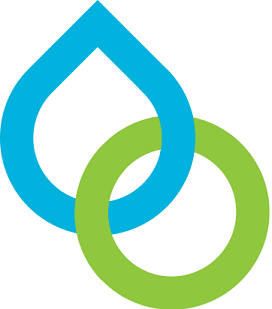Haven’t read part one? You may be a little lost! Catch up here.
Dan Rubinstein is a writer and editor currently living in Ottawa. He recently authored an article titled, “Blue Space is the New Green Space,” which appeared in the June edition of The Walrus.
Please enjoy Part Two of the interview between Dan and our Digital Content Manager, Benjamin Hargreaves where we learn more about Blue Spaces and get a behind the scenes look at what went into his article. The interview has been edited for length and clarity.
Ben, Water Docs - It's kind of an infinite topic talking about water and the potential benefits of more Blue Space. I’m sure you had to cut some stuff in the article, I imagine. So what's something you wish you could have expanded on, but couldn’t?
Dan - So actually, one of the first people I talked to was a guy in Halifax who runs a paddleboard business. But he also works as a recreation therapist at one of the big hospitals in Halifax. So he works as part of a team with psychologists, sociologists, psychiatrists, social workers, and other therapists to help youth with mental health and substance abuse problems.
He talked about being out on the water with kids who were having some real challenges. You don't hop into the ocean and try surfing for the first time and suddenly your life is good. But he said he could literally see some of the youth who're [sic] working with confronting their fears through a physical activity, such as surfing or kayaking, and beginning to feel a newfound sense of confidence. At the same time, they [also] began to kind of carve out new identities, not as somebody who was struggling, but somebody who was doing something really fun and really cool.
I think he and his work really embody some of the potential of blue space. If we create programs where kids in inner city schools are able to safely and responsibly take a kayaking course, or a canoeing course or get out onto the river or a lake, in their community, it’s not only good for physical education, but it can be a really huge thing for self esteem and for confidence. So I talked to a bunch of people whose own personal experiences on the water have really helped them find balance in their lives.
Ben, Water Docs - Speaking of people who have had personal developments on the water, one of the questions I have here is, how's Chad doing? Have you talked to him since publishing the article?
Dan - We've emailed back and forth. As a journalist, you interview somebody across the country and it was an hour and a half phone call. You feel a sense of responsibility, because somebody is opening up to you, and sharing their life and their struggles with you. Then you have to distill that down to just a couple 100 words, right? So you want to get it right, you want to do justice to the story, and you need to be responsible and ethical about how you convey somebody's story.
He speaks openly about his trauma and as you might expect, there's a bit of a macho culture, or there was, in institutions like the police, firefighters, or the military. But increasingly, people are realizing that it's okay to open up, and it's okay to not be okay. Chad has made it part of his mission, to not only share his story, but encourage others to do so.
Ben, Water Docs - What’s next for you and your interest in Blue Spaces?
Dan - There is a book to be written in this. There is a book out now called Blue Mind by an American scientist and blue space advocate named Wallace J. Nichols. And it's a good book, it's about them. It focusses on the brain health side of the Blue Space. He talked to some of the people that I've talked to in my story and shows why blue spaces are so important. It has so much potential.
There's other stories to tell and we haven't talked much about environmental stewardship at this point. But I think that's underlying it all. If we are to be truly healthy and whole human beings as a species on this planet, we need water and we need to take care of our water. We need to not only feel this sort of personal connection but also a personal feeling of stewardship or responsibility towards reducing pollution and towards preserving shorelines and aquatic species. For both the personal health reasons and greater environmental and planetary health, water is pretty damn important. It's something we should be spending more time [with] and [paying more] attention to.
Ben, Water Docs - Thank you for elaborating on that, you kind of covered [the] two remaining questions I had written. So thank you for speaking with me Dan, I really appreciate it.
Dan - Awesome. Thanks so much.
Thanks for speaking with us, Dan!
You can follow him on Twitter at @dan_rube.



